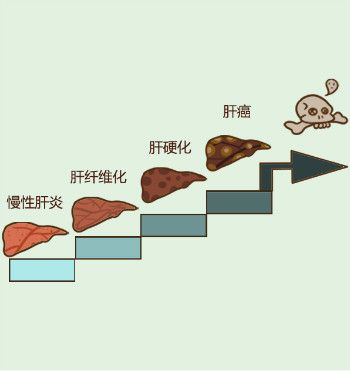司美格鲁肽2.4mg可降低超重或肥胖且已确诊心血管疾病患者的总体心血管事件负担
- 司美格鲁肽2.4mg(商品名:诺和盈®)可使超重或肥胖且已确诊心血管疾病(CVD)但无糖尿病的患者总体心血管事件发生风险降低22%。1
- 肥胖症可直接导致心血管疾病发病率、死亡率和卒中风险上升,其中约三分之二的与肥胖相关的死亡与心血管疾病相关。2,3
- 此次分析基于SELECT研究的结果,SELECT是首个验证肥胖症治疗药物可改善心血管结局的试验。4
北京2025年4月3日 /美通社/ -- SELECT试验的最新二次分析结果显示,与安慰剂相比,司美格鲁肽2.4mg(诺和盈®)在超重或肥胖且已确诊心血管疾病但无糖尿病的患者中,可显著降低总体心血管事件负担。1这些数据结果在第74届美国心脏病学会科学年会暨博览会(ACC 2025,3月29日至31日在伊利诺伊州芝加哥市举行)上公布。这些结果为SELECT心血管结局试验的现有证据提供了补充,并进一步提供了在首次发生心血管事件后使用司美格鲁肽2.4mg获益的相关数据。1
这些研究结果具有重要意义。大多数心血管结局试验的主要分析通常仅评估首次心血管事件,而肥胖症患者是心血管疾病高风险群体,可能会在一定时间内经历多次心血管事件。因此,仅分析首次心血管事件无法完全反映肥胖症对健康的长期负担及患者面临的损伤或过早死亡风险。1,5
在SELECT试验的此项预设二次分析中,与安慰剂相比,司美格鲁肽2.4mg可使主要不良心血管事件(MACE)的首次发生风险降低20%(HR: 0.80; 95% CI 0.73–0.87; P<0.001),并使总体(首次及后续)心血管事件发生风险降低22%(MR: 0.78; 95% CI 0.70–0.86; P<0.001)。[*]1此外,与安慰剂相比,司美格鲁肽2.4mg可使总体心脏病发作风险降低31%(MR 0.69; 95% CI 0.58–0.82; P<0.001),总体冠状动脉血管重建风险降低26%(MR: 0.74; 95% CI 0.65–0.84; P<0.001),共同推动了总体心血管事件风险下降。1
此项分析共纳入17,604名受试者,平均随访时间39.8个月,共计发生3,031例心血管事件,其中,1,947例(64%)为首次事件,1,084例(36%)为后续事件。1在首次心血管事件中,冠状动脉血管重建的比例为27.2%,心脏病发作的比例26.2%;而在后续心血管事件中,冠状动脉血管重建的比例为72.9%,心脏病发作为10.3%。1
总体而言,SELECT研究的最新次要分析结果表明,在超重或肥胖且已确诊心血管疾病但无糖尿病的患者中,司美格鲁肽2.4mg显著降低了首次、后续及总体心血管事件风险。1这进一步印证了司美格鲁肽2.4mg在已证实的健康获益外,还具有降低心血管风险的潜力。4,6-16
关于肥胖症与心血管疾病
肥胖症是一种慢性疾病,可直接导致心血管发病率、死亡率及住院风险增加,17,18肥胖相关的死亡有三分之二与心血管疾病相关。2,3肥胖还与高血压、慢性肾病和炎症等多种风险因素有关。19对于已患有心血管疾病的超重或肥胖患者而言,及时的干预至关重要,以降低包括心脏病发作和卒中在内的MACE的残余风险。5尽管治疗手段不断进步,但针对肥胖相关疾病的有效治疗方案仍存在巨大的未被满足的需求。20
关于SELECT研究
SELECT是一项国际性随机、双盲、平行分组、安慰剂对照试验,旨在评估司美格鲁肽2.4mg和安慰剂结合标准治疗在超重或肥胖且已确诊心血管疾病但无糖尿病病史的人群中预防MACE的有效性。9被纳入试验的人群年龄≥45岁、BMI≥27 kg/m2,最长随访时间达到5年。9
SELECT试验的主要目标是证实与安慰剂相比,司美格鲁肽2.4mg在降低3点MACE(包括心血管死亡、非致死性心脏病发作(心肌梗死)或非致死性卒中)发生率方面的优效性。4关键的次要目标是比较司美格鲁肽2.4mg相较于安慰剂在死亡率、心力衰竭、心血管风险因素(包括糖代谢、体重和肾功能)方面的疗效4。
SELECT研究于2018年启动,共招募了17,604名成人受试者,在41个国家和地区的800多个研究中心开展了研究。
SELECT研究的主要研究结果已于2023年11月在美国心脏协会科学年会上公布,并发表于《新英格兰医学杂志》(NEJM)。4迄今为止,SELECT研究已衍生出多个数据集和次要分析,相关研究结果已在多个心血管、肾脏及代谢疾病相关的科学大会上发布,相关成果也已发表于众多权威医学期刊4,10-16。
参考文献
1. Lincoff, MA, Colhoun HM, Emerson S. (2025) Effect of the GLP-1 receptor agonist semaglutide on total cardiovascular events in patients with cardiovascular disease and overweight or obesity but no diabetes in the SELECT trial. Presented at ACC 2025, Chicago, United States. |
2. Collaborators GBDO, Afshin A, Forouzanfar MH, et al. Health Effects of Overweight and Obesity in 195 Countries over 25 Years. N Engl J Med. 2017; 377:13-27. |
3. Martin-Timon I, Sevillano-Collantes C, Segura-Galindo A, et al. Type 2 diabetes and cardiovascular disease: Have all risk factors the same strength? World J Diabetes. 2014; 5:444-470. |
4. Lincoff MA, Brown-Frandson K, Colhoun HM, et al. Semaglutide and Cardiovascular Outcomes in Obesity without Diabetes. N Engl J Med. 2023;389:2221-2232. |
5. Koskinas KC, Van Craenenbroeck EM, Antoniades C et al. Obesity and cardiovascular disease: an ESC clinical consensus statement. European Heart Journal. 2024;45(38):4063–4098. |
6. Kosiborod MN, Abildstrom SZ, Borlaug BA, et al. Semaglutide in Patients with Heart Failure with Preserved Ejection Fraction and Obesity. N Engl J Med. 2023; 389:1069-1084. |
7. Kosiborod MN, Petrie MC, Borlaug BA, et al. Semaglutide in Patients with Obesity-Related Heart Failure and Type 2 Diabetes. N Engl J Med. 2024; 390:1394-1407. |
8. Bliddal H, Bays H, Czernichow S, et al. Once-weekly semaglutide in people with obesity and knee osteoarthritis. N J Engl J Med. 2024:391(17):1573-1583. |
9. Lingvay I, Brown-Frandsen K, Colhoun HM, et al. Semaglutide for cardiovascular event reduction in people with overweight or obesity: SELECT study baseline characteristics. Obesity (Silver Spring). 2023; 31:111-122. |
10. Deanfield JE, Verma S, Scirica BM, et al. Semaglutide and cardiovascular outcomes in patients with obesity and prevalent heart failure: a prespecified analysis of the SELECT trial. Lancet. 2024;404(10458). |
11. Ryan DH, Lingvay I, Deanfield JE, et al. Long-term weight loss effects of semaglutide in obesity without diabetes in the SELECT trial. Nat Med. 2024;30:2049–2057. |
12. Scirica BM, Lincoff AM, Lingvay I, et al. The effect of semaglutide on mortality and COVID-19–related deaths: an analysis from the SELECT trial. J Am Coll Cardiol. 2024;84(10):1350–1359. |
13. Kahn SE, Deanfield JE, Jeppesen OK, et al. Effect of semaglutide on regression and progression of glycemia in people with overweight or obesity but without diabetes in the SELECT trial. Diabetes Care. 2024;47(8):1350–1359. |
14. Kosiborod MN, Deanfield JE, Pratley RE, et al. Semaglutide versus placebo in patients with heart failure and mildly reduced or preserved ejection fraction: a pooled analysis of the SELECT, FLOW, STEP-HFpEF, and STEP-HFpEF DM randomised trials. Lancet. 2024;404(10456):949-961. |
15. Colhoun HM, Lingvay I, Brown PM, et al. Long-term kidney outcomes of semaglutide in obesity and cardiovascular disease in the SELECT trial. Nat Med. 2024;30:2058–2066. |
16. Nicholls SJ, Ryan DH, Deanfield JE, et al. Semaglutide reduces hospital admissions in patients with obesity or overweight and established CVD. Presented at ObesityWeek® 2024, San Antonio, USA, November 3, 2024. |
17. Haidar A, Horwich T. Obesity, Cardiorespiratory Fitness, and Cardiovascular Disease. Curr Cardiol Rep. 2023;25:1565–1571. |
18. Zizza C et al. Length of Hospital Stays Among Obese Individuals. Am J Public Health. 2004;94:1587–1591; 3. |
19. Powell-Wiley TM, Poirier P, Burke LE, et al. Obesity and Cardiovascular Disease: A Scientific Statement From the American Heart Association. Circulation. 2021;143:e984-e1010. |
20. Rigopoulos AG, Bakogiannis C, de Vecchis R, et al. Acute heart failure: An unmet medical need. Herz. 2019; 44:53-55. |
[*]研究所定义的"扩大的MACE综合结局"包括心血管死亡、心脏病发作、卒中、冠状动脉血管重建或因不稳定型心绞痛住院。 |
本文RSS来源:美通社
-
真实世界研究SCORE证实诺和盈®(司美格鲁肽2.4mg)可降低心血管事件风险
基于具有里程碑意义的SELECT试验结果,SCORE研究表明,在真实世界中,使用司美格鲁肽2.4mg可降低心血管(CV)风险...[详细]
-
司美格鲁肽2.4mg可降低超重或肥胖且已确诊心血管疾病患者的总体心血管事件负担
司美格鲁肽2.4mg(商品名:诺和盈®)可使超重或肥胖且已确诊心血管疾病(CVD)但无糖尿病的患者总体心血管事...[详细]
-
ACC 2025:SOUL试验证实诺和忻®(司美格鲁肽片14 mg)在降低心血管事件方面具...
在SOUL心血管结局试验中,相较于安慰剂,诺和忻®(Rybelsus®)在合并心血管和/或慢性肾脏病的成人2型糖尿病...[详细]
-
无线电视全新剧集 以黄天赐教授事迹为灵感 呈现现代中医传奇
“侠医仁心,传承百年医道精神” 解像度照片请于此处下载:http://bit.ly/42hIihQ 香港2025年4月2日 /美...[详细]
-
金赛药业再获权威认证:两款生长激素产品新载入2025年版《中国药典》,实现全剂型收录
上海2025年4月2日 /美通社/ -- 3月25日,国家药监局、国家卫生健康委联合颁布2025年版《中华人民共和国药典》。金赛...[详细]
-
「信和创意研发室」及The Spark鼓励融入生活推动创科
进驻北部都会区一周年连系逾2,000人次 香港2025年4月2日 /美通社/ -- 信和集团(「集团」)一向重视培育及吸引人才...[详细]
-
-
歌礼宣布有望成为同类首创皮下注射小分子GLP-1R激动剂ASC30美国Ib期试验取得积极期...
- 小分子ASC30超长效皮下注射剂在肥胖症患者中
-
日本首款:绿叶制药创新制剂利斯的明透皮贴剂(2次/W)在日本获批上市,治疗阿尔茨海默病痴呆
东京2025年3月31日 /美通社/ -- 绿叶制药集团宣布
-
打破进口药垄断局面 中国首个自主研发流感特效药伊速达®获批上市
北京2025年4月1日 /美通社/ -- 全民健康网健康资
-
药明康德常州及泰兴原料药基地成功通过美国FDA检查
上海2025年4月1日 /美通社/ -- 药明康德今日宣布
-
默克行权,和誉医药匹米替尼全球权益落地
上海2025年4月1日 /美通社/ -- 2025年4月1日,上海
-
科技赋能医疗,共享生命跳动,嘉会医疗连续第七年举办公益献血日
上海2025年3月31日 /美通社/ -- 2025年3月31日,正
-
-
-
肝纤维化不能吃什么?肝纤维化饮食的注意事项有哪些?
中国人口14亿多,其中有9000万乙肝病毒感染者
-
肝硬化需要全疗程用药吗?哪个品牌的软肝片好?用药讲疗程,安全有保证!
人们常说“慢性病要以慢治慢”。古人倡导“
-
肝硬化的突出表现有哪些?用什么药软肝效果好?保肝软肝就选中成药
肝硬化是一种常见慢性病,引起肝硬化的病因
-
肝硬化的前期表现有哪些?肝硬化前期该如何选择软肝药品呢?
中国人的饮酒文化众所皆知,都特别喜欢酒桌
-
肝硬化患者吃什么药好,复方鳖甲软肝片有效吗?疗效值得认可
我国是肝病高发生率大国,每年有超过120万病
-
肝硬化吃复方鳖甲软肝片怎么样?复方鳖甲软肝片功效与作用来评价
肝硬化是一种常见的慢性肝病,是由一种或多
-
-
-
-
-
-
-
-
-
-
-
-
 优养在线
优养在线







































